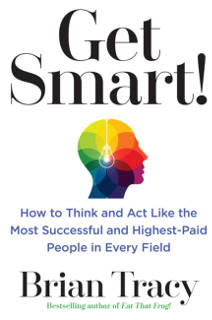[Photo by rawpixel.com on Unsplash]
Dear friend,
About three weeks ago, I wrote a column arguing why India had almost missed the bus in tapping the huge affordable housing opportunity. And one key reason for that was that our policy makers had chosen to engage with large developers, to the exclusion to the small, unknown entrepreneurs who currently deliver 90% of the supply of affordable homes. This is despite the fact that by now it is clear that large developers have little or no interest in catering to the demand for homes in the Rs 5 lakh to Rs 20 lakh range.
Just a few days after the column was published, I received an interesting mail from one of the 20,000-odd small builders dotting the country. He was a 68-year-old real estate entrepreneur, based in Hyderabad. He was passionate about doing something to bring a roof over the heads of our millions of homeless people. He had head-butted with local government officials over the years, written several letters to them, and tried to galvanise local builder associations to lobby for support for entrepreneurs like him in solving India’s affordable housing crisis. But it had fallen on deaf ears.
I posted the first mail on my Facebook page, where he had tried to simply explain how the state governments had chosen not to notify specific rules from the National Housing Code for low income housing—one of the many reasons that had stymied the growth of the sector. The post initially met with scepticism from a few friends. That was perhaps understandable, because it seemed almost inexplicable why the government would simply not carry out the policy—despite the acute need for low-cost housing. I encouraged him to continue the conversation on Facebook. And over a series of subsequent mails and posts, the entrepreneur explained his vision of how the seemingly tough low-cost housing challenge in India could be solved. By its own entrepreneurs. Provided their ideas were listened to. I am no real estate expert, but to me, the ideas sounded sensible and practical.
That’s why Arun Maira’s superlative essay on The purpose of the enterprise this week is a must read for anyone who is concerned about the quality of conversations and dialogue on issues of national importance in our society. There are many gems in his essay, but there’s one that stands out for me. It is becoming difficult to have thoughtful deliberations about many difficult issues in our country. Better dialogues will improve the quality of public policies. They will also strengthen democracy. The progress of the country depends on this, says Maira. Yet, are we prepared to listen to different points of view? Are we prepared to learn how to listen? Especially in an age where social media has created its own echo-chamber of voices that are tuned to listen to people like us, rather than people like them? That’s a fundamental question that each of us must ask ourselves.
In the same vein, I’m sure you’ll also enjoy N Dayasindhu’s column on Grand Challenges—because it talks about how governments, entrepreneurs, industry and universities can come together to solve complex challenges, in mission mode.
Please do write in to us with your comments and feedback at feedback@foundingfuel.com.
Have a great week ahead!
Best,
Indrajit Gupta
On behalf of Team Founding Fuel
Featured Stories
The purpose of the enterprise

[Photo by Vlad Tchompalov on Unsplash]
Businesses, and inventors in technologies, must be held accountable for the impacts their products have on the lives of their customers and on societies, says Arun Maira. We must ask, why is this to be done? Who will benefit? Who may be harmed by it? (Read time: 13 mins)
A mission to solve grand challenges

[From tartanracing.org]
Grand challenges that bring together government, universities and industry, can solve near future problems using technologies innovatively, says N Dayasindhu. (Read time: 7 mins)
What We’re Reading
Why we forget most of the books we read
The way people now consume information and entertainment has changed what type of memory we value. In this internet era, more than recall memory, recognition memory is more important. So long as you know where that information is at and how to access it, you’re fine, says Julie Beck, in an essay from The Atlantic. (Read time: 5 mins)
Yale’s most popular class ever: Happiness
Why students are flocking to Dr Laurie Santos’s course on positive psychology in a bid to get away from being anxious, stressed, unhappy, and numb. The course aims to not only make individual students happier, but also to change the culture at Yale, says David Shimer in The New York Times. (Read time: 4 mins)
From Our Archives
Get Smart: Making effective decisions

Think long term, plan for success based on real facts, and have clear goals, says Brian Tracy in his book ‘Get Smart!: How to Think and Act Like the Most Successful and Highest-Paid People in Every Field’. D Shivakumar culls out the essence. (Read time: 6 mins)
Affordable healthcare: India’s big opportunity

[By DFID - UK Department for International Development (CC BY-SA 2.0), via Wikimedia Commons]
India has a unique opportunity to pioneer a distinct model of affordable healthcare. There are already many outstanding examples of healthcare innovation in the country, says Rishikesha Krishnan (Read time: 4 mins)

